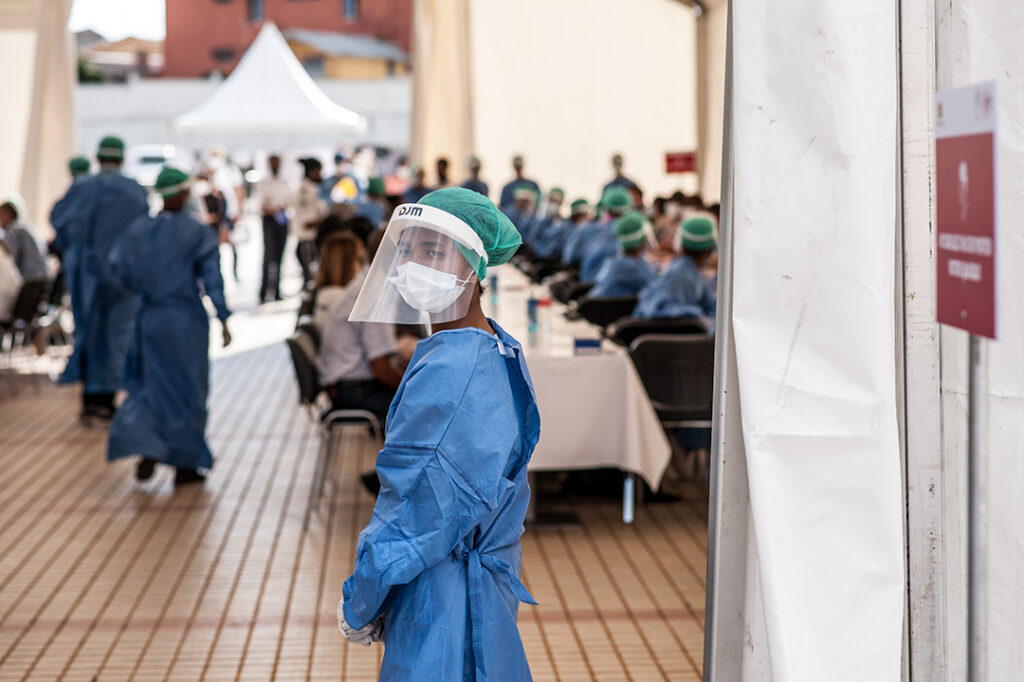ADF STAFF
Since the COVID-19 pandemic began, research into treatment has focused largely on addressing the worst-case scenarios of the disease: hospitalization and death.
Now, scientists are turning their attention toward drug treatments for mild forms of the disease.
Researchers say doing so addresses several things at once:
- It cuts short the disruptive five- to10-day quarantine period for those who contract COVID-19.
- It prevents further spread by disrupting the virus early when people are at their most infectious.
- It is relatively inexpensive, making it possible to address COVID-19 in countries where more expensive treatments are hard to come by.
“We need to make sure that we reflect that [those facts] as we move forward with clinical trials in this space,” researcher Susana Naggie, an infectious disease specialist at Duke University in the United States, told Nature magazine.
Disrupting infections early also could give the virus few opportunities to create new variants. The most recent COVID-19 strains, the BA.4 and BA.5 strains of the omicron variant, have proved capable of evading the immune system to cause widespread infections.
Scientists say treating COVID-19 when symptoms are mild also addresses one of the virus’s most problematic aspects: It’s impossible to predict how a person’s immune system will respond to infection.
For some people, COVID-19 produces few to no symptoms. Others can experience an overwhelming and potentially fatal “cytokine storm” when their immune system begins attacking the rest of their body’s systems.
“The reality is that everybody is at risk,” British immunologist Marc Feldman told Nature.
Feldman is part of a team that is developing a compound known as an iminosugar that has the potential to treat mild COVID-19 and shut down infections before they progress.
The treatment relies on the fact that viruses need sugar from their host’s cells to complete the spike proteins they use to unlock human cells.
Iminosugars appear in nature in plants such as mulberries but also can be made in a laboratory. As a treatment, iminosugars seed the host’s cells with a form of sugar that leads to malfunctioning spike proteins, disrupting the virus’s ability to reproduce.
Iminosugars are undergoing safety review and could reach clinical trials in two years, according to Oxford University biochemist Raymond Dwek, who works with them.
Although iminosugars show promise for treating mild COVID-19, they are only the most recent potential treatment to emerge. Several other studies, including Africa’s ANTICOV project, seek solutions to mild COVID-19 by using existing drugs.
ANTICOV is testing a variety of readily available, familiar and inexpensive drugs to determine whether they can be added to the COVID-19 arsenal.
When it launched in September 2020, the project planned to enroll up to 3,000 subjects with mild forms of COVID-19. So far, it has reached only half that number, according to its website.
Other programs, such as ACTIV-6 and TOGETHER, also are looking for treatments for mild COVID-19 among existing pharmaceuticals.
One drug that shows promise is fluvoxamine, which is used to treat depression. The ACTIV-6 and TOGETHER projects tested fluvoxamine in Brazil and found that it prevented mild COVID-19 from progressing to more severe cases. Fluvoxamine has the advantage of costing about $4 per treatment and being off patent, which means it could be developed as an inexpensive generic.
In July, the World Health Organization said fluvoxamine should not be used outside the ongoing clinical trials, but it remains open to research that could change its stance.
Fluvoxamine could become a substitute for expensive monoclonal antibodies as a treatment for early onset COVID-19. It also could replace Paxlovid, which is prescribed for people at high risk because of age or health issues. Paxlovid has been shown to cause “rebound” COVID-19 in which the virus returns after patients think they have recovered.

